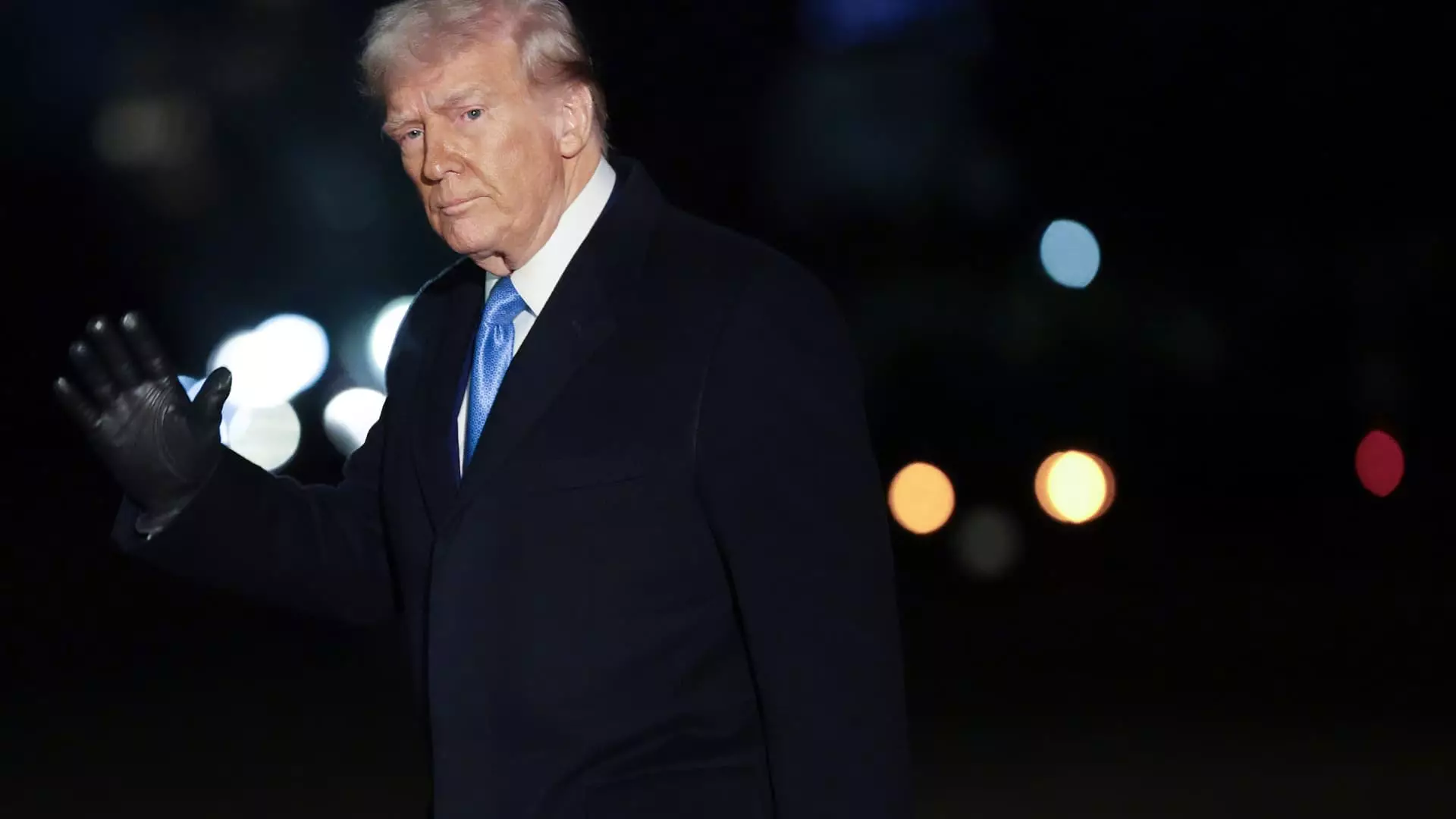On a significant day for advocates of diversity, equity, and inclusion (DEI) programs, a federal judge in Maryland took decisive action by blocking President Donald Trump’s attempts to implement prohibitions on these initiatives at federal agencies and among businesses with federal contracts. This ruling by U.S. District Judge Adam Abelson interrupts a series of controversial directives from the Trump administration, asserting that they likely infringe upon the First Amendment rights enshrined in the Constitution. The core of this legal struggle highlights a broader national conversation about inclusivity, freedom of speech, and the government’s role in navigating these complex social issues.
The absence of immediate clarification regarding the implications of this ruling for actions already executed by the Trump administration—including the dismantling of DEI offices and the termination of personnel involved with these programs—leaves a significant question mark for advocates and opponents alike.
Judge Abelson’s decision is a critical moment for supporters of diversity initiatives, who argue that these programs are essential for addressing persistent inequalities in the workforce. The suit, launched by the city of Baltimore alongside three advocacy groups, contends that Trump’s orders not only exceed his lawful authority but also pose a substantial threat to free speech. Abelson noted in his ruling that the plaintiffs successfully demonstrated a “chilling” effect on protected speech resulting from the imposition of these directives.
The specifics outlined in Abelson’s ruling indicate a tentative but significant legal barrier against what many perceive as a systematic effort to undermine the progress made in civil rights. Abelson succinctly captured the essence of the arguments by stating that the efforts to encourage inclusivity have been legally established practices for decades. Such a perspective reinforces the idea that DEI initiatives are not merely modern trends but integral aspects of fostering a more equitable society.
The political backdrop against which these legal battles play out is equally important. The implementation of DEI policies gained momentum following the nationwide protests in 2020 that highlighted racial injustices and police brutality toward African American citizens. Trump’s orders can thus be viewed as part of a conservative backlash against these developments, portraying DEI initiatives as divisive rather than inclusive. This notion contradicts the stance taken by civil rights advocates, who argue that DEI programs exist to remedy historical and systemic inequities that continue to disadvantage marginalized communities.
Trump’s administration characterized the directives as efforts to combat what they described as unlawful discrimination rather than a suppression of free speech. However, this justification has been met with skepticism by those who contend that the lack of clarity in the definition of DEI policies leaves ample space for misinterpretation and arbitrary enforcement of these orders, potentially endangering the very speech they purport not to restrict.
The ruling’s broader implications extend beyond just this legal case. It reflects a larger national struggle over how best to integrate principles of diversity and inclusion within societal norms, workplaces, and public institutions. The debate over DEI initiatives encapsulates deep-seated divisions in American society regarding race, equity, and justice—all of which are compounded by the political climate.
As advocates celebrate the ruling, they remain acutely aware that it is only a temporary injunction. The ongoing litigation and political machinations surrounding DEI initiatives mean that the fight is far from over. Supporters of these programs will need to remain vigilant, not only in facing potential challenges from the Trump administration but also in addressing the sentiments that galvanize opposition to DEI efforts.
The legal landscape surrounding these issues will undoubtedly continue being shaped by ongoing trials and shifting political winds, signifying a critical juncture in the quest for a more inclusive society. The outcome of this legal battle will have lasting repercussions on how diversity and inclusion are framed within the context of free expression and governmental authority.


Leave a Reply